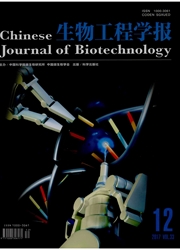

 中文摘要:
中文摘要:
单克隆抗体是现代生命科学研究的重要工具,为许多领域的发展作出了不可估量的贡献。随着PCR技术和单克隆抗体技术的发展和成熟,单个B细胞抗体制备技术迅速兴起。该技术能够对单个的抗原特异性B细胞进行抗体基因的体外克隆和表达,保证了轻重链可变区的天然配对,相较于传统的抗体制备技术具有效率高、全人源、基因多样性更丰富等优势。单个B细胞抗体制备技术已成为制备全人抗体的热门方法,同时也促进了包括抗体发生成熟、疫苗保护机制、疫苗开发、肿瘤及自身免疫疾病等免疫学相关研究。文中就单个B细胞抗体制备技术的过程及应用作简要综述。
 英文摘要:
英文摘要:
Monoclonal antibodies (mAbs) contribute a lot to the development of numerous fields in life science as a pivotal tool in modern biological research. Development of the PCR methods and maturation of antibody production have made it possible to generate mAbs from single human B cells by single cell RT-PCR with successional cloning and expression in vitro. Compared to traditional monoclonal antibody technologies, single B cell technologies require relatively fewer cells, which are highly efficient in obtaining specific mAbs in a rapid way with preservation of the natural heavy andlight chain pairing. With so many advantages, single B cell technologies have been proved to be an attractive approach for retrieval of naive and antigen-experienced antibody repertoires generated in vivo, design of rationale structure-based vaccine, evaluation and development of basic B cell biology concepts in health and autoimmunity, and prevention of infectious diseases by passive immunization and therapy for disorders. Accordingly, this review introduced recent progresses in the single B cell technologies for generating monoclonal antibodies and applications.
 同期刊论文项目
同期刊论文项目
 同项目期刊论文
同项目期刊论文
 Overexpression of survivin and cyclin D1 in CHO cells confers apoptosis resistance and enhances grow
Overexpression of survivin and cyclin D1 in CHO cells confers apoptosis resistance and enhances grow Enhanced expression of soluble recombinant tetanus neurotoxin Hc in Escherichia coli as a tetanus va
Enhanced expression of soluble recombinant tetanus neurotoxin Hc in Escherichia coli as a tetanus va A Conformational Change of C Fragment of Tetanus Neurotoxin Reduces Its Ganglioside-Binding Activity
A Conformational Change of C Fragment of Tetanus Neurotoxin Reduces Its Ganglioside-Binding Activity Establishment of Tetracycline-Inducible, Survivin-Expressing CHO Cell Lines by an Optimized Screenin
Establishment of Tetracycline-Inducible, Survivin-Expressing CHO Cell Lines by an Optimized Screenin Antiviral Potential of Exogenous Human Omega Interferon to Inhibit Pandemic 2009A (H1N1) Influenza V
Antiviral Potential of Exogenous Human Omega Interferon to Inhibit Pandemic 2009A (H1N1) Influenza V Deletion modification enhances anthrax specific immunity and protective efficacy of a hepatitis B co
Deletion modification enhances anthrax specific immunity and protective efficacy of a hepatitis B co 期刊信息
期刊信息
